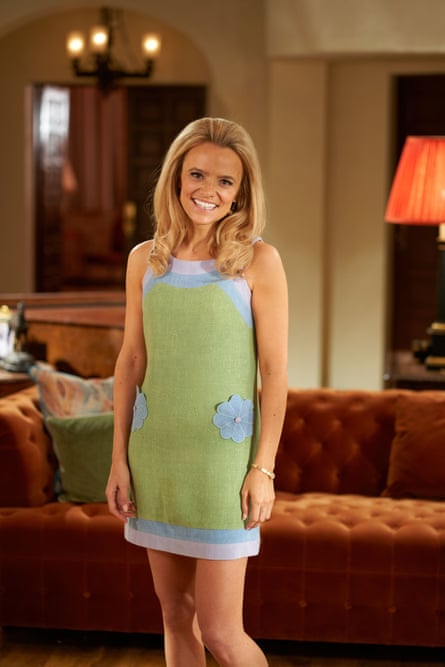So many movie stars struggle to live up to the screen persona that made them famous, but for one of the greatest leading men in Hollywood history, that contrast was unusually acute. Cary Grant was not just a name that Archie Leach adopted to sell himself as an actor; he was a character Leach played for decades on and off screen, in a futile attempt to become someone else.
Archie, an emotive four-part bio-drama, follows its subject through no fewer than five phases of his life. Dainton Anderson is Archie the young boy, growing up in Bristol in the 1910s, in grim poverty made even harsher by the feckless cowardice of his father, Elias (Henry Lloyd-Hughes), who is depicted as partly responsible for the death of Archie’s elder brother. His mother never recovers from the loss: a pulverising scene with Kara Tointon as Elsie Leach, filmed from above to mimic the young Archie watching her from the top of the stairs, sees her scrubbing the living-room floor in semi-darkness before suddenly stopping, throwing her head back and screaming. The tragedy becomes a defining moment when the conniving Elias has the grieving but not unstable Elsie committed to an asylum, lying to Archie that his mother is dead.
The teenage Archie (Oaklee Pendergast) runs off to join an acrobatic troupe, which takes him to New York, where he refuses to board the ship home and becomes a young adult (Calam Lynch, coping well with the intimidating prospect of mimicking a megastar in the making) trying to find his fortune as an actor. The series isn’t afraid to present watershed moments in charmingly cheesy fashion. Archie teaches himself to act, and learns to hide his Bristol accent, in a single evening spent learning lines in his dingy attic digs. Then, when success beckons in 1932 and he’s asked to change his name, he rebrands himself as Cary Grant, with the aid of a Los Angeles phone book and a terrifically uninterested movie-studio secretary who just wants to complete the paperwork on time.
With one of cinema’s most shocking backstories laid out and one of its most radical reinventions completed, the series saves itself from becoming an unwieldy epic by making a bold decision. The peak years of Grant’s career are swerved: Bringing Up Baby, His Girl Friday and The Philadelphia Story are but posters flapping past in a time-skipping montage. This is not a series about a star who cannot cope with fame; it’s about a man who cannot escape the trauma of his childhood. We pick Grant up in the early 60s, when he is many films and three divorces down. Archie is based in part on the memoir of Grant’s fourth wife, Dyan Cannon, who is credited as executive producer, and in Grant’s doomed relationship with Cannon, the show finds its whole story.
after newsletter promotion

Cannon is 33 years younger than Grant and is sharp and self-aware enough to know that a romance with him is bound to be a mistake, but she’s defeated by the self-ironising suaveness and overpowering good looks that have made Grant a superstar. Yet her first impressions are correct. Before and during their brief marriage, Grant is possessive, jealous and aggressively fussy to the point of being abusive, forever correcting Cannon’s grammar, putting a coaster under her water glass and addressing her as “child”. His considerable mother issues are not helped by the reappearance of his actual mother, now played by a typically biting Harriet Walter.
As Cannon, Laura Aikman superbly captures a future star’s fragile mix of energy, intelligence and naivety. Jason Isaacs, meanwhile, exactly embodies both the superficial appeal of Grant – the smooth patter, stocky frame and air of amused incredulity – and the smothered menace that Jeff Pope’s script is digging down to find. Isaacs plays Grant as a man who is too damaged to be as kind as he would like, too busy compensating for his past to see what is important to him in the present. It would have been easy to sanitise how difficult Grant was to live with, but Archie doesn’t – and if there is any suspicion that we are watching Cannon’s side of the story, well, if it was only half as bad as she says, it was really bad.
The lament for a contented life just out of reach is underlined by a fifth incarnation of Grant in the 1980s, unburdening himself by talking frankly to fans on the speaking tour he undertook before his death. Isaacs, still in the role, has the squishy twinkle of the ageing Grant to a tee, and there’s a tearful catharsis in the closing scenes, which make clear that Grant did find redemption in his parenting of his and Cannon’s daughter, Jennifer. It’s a welcome happy-ish ending for a uniquely sad tale.
Archie is on ITVX in the UK, and can be streamed on BritBox in Australia from 14 December.
